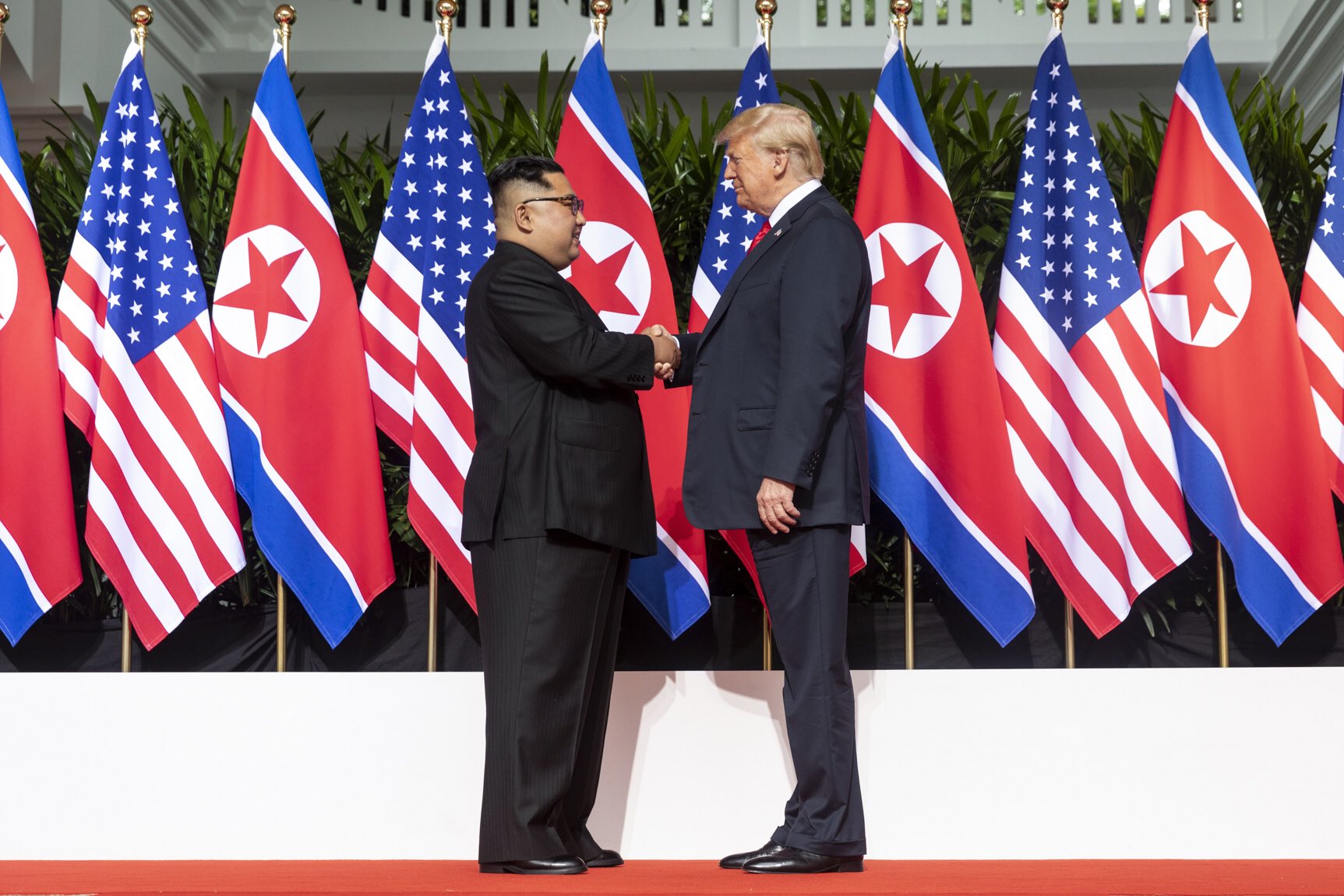
Two senators are wary there will be any movement to denuclearize the Korean Peninsula following this month’s summit talks between President Donald Trump and North Korean leader Kim Jong-Un in Vietnam.
“I worry a lot” about the lifting of sanctions on Pyongyang without seeing concrete steps being taken to end North Korea’s nuclear weapons and expanding missile programs, Sen. Cory Gardner (R-Col.) said at the Woodrow Wilson Center in Washington, D.C. on Thursday.
“Maximum pressure must be applied to the maximum effect” before major concessions are made on the American side, Gardner, the chairman of the Senate Foreign Relations subcommittee on East Asia, the Pacific, and international cybersecurity policy, said. China, he said, would need to play a key role in a plan going forward. China has voted in the Security Council to abide by the sanctions imposed by the U.N. Security Council.
“China and the United States are not exactly on the same page” when it comes to dealing with a North Korea remaining a nuclear power or America’s future role on the peninsula.
“Have [the North Koreans] provided us an inventory … let any [International Atomic Energy Agency] inspectors in,” Sen. Edward Markey (D-Mass.), the subcommittee’s ranking member said, “I’m not optimistic” about these talks changing the reality on the ground.
Markey and Gardner said for decades the Kim family has pursued “a rope-a-dope strategy” when it comes to dismantling Pyongyang’s nuclear and missile programs — North Korea saying it would do something but did little or nothing.
The pair also expressed concern that there had been little diplomatic groundwork laid for this second summit, leaving allies and partner, as well as the Congress in the dark, on exactly what the United States is looking for in Hanoi.
“Japan is still wondering what the objectives of the United States are” going ahead, Markey said. If it is tearing down Pyongyang’s intercontinental ballistic missile program, that leaves Tokyo vulnerable to shorter range missile attack.
The same question about future vulnerability applies to whether the North would be allowed to maintain its current nuclear stockpile or have it destroyed, as was the case with weapons the Soviet Union stored in Ukraine, in any future agreement.
These concerns over exposure to attack are shared by South Korea.
“We actually don’t know the negotiating goals of the president,” he added.
Gardner said when he visits the Indo Pacific he is asked by allies and partners, “Where are the Bob Doles, the Danny Inouyes … to help reassure our allies and friends.” The two former senators were noted for their keen interest in the region and bipartisan approach to international and security affairs.
“We have to see real action” on North Korea’s part before even considering a peace treaty with Pyongyang putting a formal end to the Korean War, Markey said. One of Kim’s goals is to sign a peace treaty, signifying his regime’s importance as a world power.
“The details matter,” Markey said. An armistice between the United Nations and North Korea has been in place since 1953.
“Even in a perfect world” where North Korea agreed to inspections of its nuclear facilities, dismantling of its weapons programs and a peace treaty were signed, Gardner would press the point that an American presence in Korea was important for stability in the region.
“Congress will fight like hell” over any proposal coming from the talks in Hanoi about withdrawing American forces from Korea, Gardner added in answer to an earlier question. He termed the idea “a massive, monumental mistake.”
What sparked the question was the White House announcing the suspension of large military exercises with South Korea following Trump’s first round of talks with Kim. While the House Armed Service Committee chairman took a wait-and-see approach to let the negotiations to proceed then, members of the Senate, including Gardner, were more skeptical of what would be achieved by such a move.
“It doesn’t make any sense … to reduce military pressure” and economic pressure now, Markey added.
Although most of the discussion centered on North Korea’s weapons programs and the upcoming meeting in Hanoi, China’s grasp and influence throughout entire region was a concern the pair addressed in several ways.
Their “Indo-Pacific Initiative,” based on the steps Congress approved in the wake of Russia’s seizure of Crimea and overt and covert support of Ukrainian separatists, was “a soup-to-nuts” bill to counter China, Gardner said. Calling for $8.6 billion to be spent over the next five years designed “to fill the vacuum” of a perceived American pullback from the Indo-Pacific, Markey added, “This was a signal being sent” to every country there “that we cared.”
The money is to be spent not only on security issues — such as maritime domain awareness and partners’ capabilities and capacities — but USAID projects to assist development and provide an alternative to Beijing’s One Belt/One Road initiative.
Markey said the United States “doesn’t have to be afraid of China” when it comes to their investments in the Indo-Pacific or its work in artificial intelligence and cyber security, but “we can’t just turn a blind eye” to the investments Beijing is making abroad and domestically.
Both said nations there are interested in working with the United States on a host of economic and security issues because they trust Washington as a believer in the rule of law. Markey said $1 billion of the money is targeted to reinforcing democratic principles to offset the rise of authoritarianism in the Philippines, Thailand and Myanmar.
The idea behind the bill, Gardner said was “to enter cooperative agreements with dollars behind it” and to be able to identify in advance potential trouble areas, “the next South China Sea.”
By comparison, the European Reassurance Initiative’s funding for Fiscal Year 2019 is $6.5 billion.





